Welcome to FAQs, the series where I ask an expert to share their take on a zeitgeist-y topic.
There are a lot of trending topics in the beauty and wellness world, and even I, as both a brand strategist and writer, have a hard time distinguishing between buzzy marketing terms and genuinely important information. In this series, I’ll be asking professionals that I personally trust / admire to decode these buzz words and share their expertise.
Today’s topic is makeup-as-skincare, or skincare-as-makeup. In the age of clean beauty and no-makeup-makeup, the lines between the two fundamentals — skincare and makeup — have never been blurrier.
A lot of brands tout their makeup’s ability to act as a skincare item, but my antenna goes up when I hear anything that reeks of that fishy too-good-to-be-true stench.
I, a marketer who should know better than to fall for all of these “better-for-you” claims, still falls for the allure of a healthier or cleaner alternative. As much as I desperately want to believe that what I’m using is “clean” (whatever that means), I also know that all that glitters is not gold.
That’s why I asked the very wonderful Kimberly Bradshaw to get real with me.
Kimberly has been a cosmetic chemist for over 20 years, starting on the bench (in layman’s terms: MAKING THE FORMULAS IN A LAB) for Revlon and L’Oreal. Since then, she’s shifted more into R+D, which she directed for Benefit Cosmetics (ever heard of it?) for almost ten years. Before going solo as a Product Development / Regulatory Consultant, she also led innovation at Danessa Myricks Beauty where she was tasked with incorporating functional ingredients to their makeup formulas.
Kimberly has to have one of the coolest careers, full stop. Given her experience with creating better-for-you makeup products, and her appreciation for beauty products as a consumer as well, I figured she’d be the perfect person to pester with all of my questions.
KS: Skin-ification is allegedly a buzzy phrase these days, meaning that beauty categories (makeup, haircare, etc.) now have a benefit-focused angle. I’m curious what your thoughts are on the concept overall —
KB: It’s such a confusing cross-section and even I have conflicts within myself. Because as a cosmetic chemist, I think — ok, sure. Makeup can have skincare products in it, but how efficacious can they be? But as a consumer, I still want to have “good for my skin” ingredients in my products.
I do think that there can be skincare ingredients in makeup. At their bases, the formulations are pretty similar — water, emulsions, etc. Where it starts to eat away with makeup is once you start adding pigments, ingredients to disperse pigments, and other stabilizers, it leaves less room in your formula to add skincare ingredients at efficacious levels.

KS: Can there be makeup products with really functional doses of skincare products?
KB: It really depends on the ingredient and the functional level identified in the testing literature from the supplier. There are some ingredients that don’t require high percentages to be efficacious but others, you can still get functional doses on the very low end of the required amount, but you're not going to get that maximum functionality.
Some skincare products need certain pHs to make sure they’re functional, and those pHs may not work in certain makeup systems. If you have an active ingredient, like a glycolic acid, for example, and your pH is too high, then that ingredient won’t be functional.
And last, there are some situations where, if you're using a skincare product that has, let's say vitamin C, and you're also using a makeup product that has vitamin C, that's doubling up, which can actually have negative benefits for your skin and cause reactions from overdoing it. Plus, with makeup being your last step of your routine, that’ll also make you more sensitive to sun exposure and other factors that can negatively impact your skin.
And on that note, one more thing to consider is absorption. With makeup being your last step, some of these skincare ingredients in your makeup, depending on their molecular weight, might not penetrate the layers of your skincare.
KS: Do you feel like there’s progress being made for more functional formulations, or is a lot of it just marketing speak?
KB: Yeah, I mean it’s definitely a lot of marketing.
Speaking to brands particularly, it’s important to note that not everyone needs to have an aspect of skin care in their formulation or a “good for you” component. You might just need to be a color brand, it just depends on who you are and who your audience is.
What are the ingredients that you look for in a makeup product? Or, at least, ingredients that you think “eh, that doesn’t hurt?”
KB: Hyaluronic acid — at most, it’s adding hydration and it’s one of the building blocks of skin structure. Some of these ingredients also have sensorial effects, so even if it’s not necessarily effective, it makes the product feel nice on my skin, and that’s fine. Niacinamide and panthenol too.
SPF in makeup is the big one. It can’t replace using a regular SPF moisturizer, but it never hurts to have more. If I have SPF in my skincare and SPF in my makeup, that’s an added bonus.
KS: Are there any ingredients that you actively don’t want in your makeup?
KB: Vitamin C, retinols, AHAs, glycolic acids. Especially with makeup being your last step, you don’t want to make your skin more vulnerable to the sun.
There are also certain circumstances, like if you have acne for instance, where you want to cover and protect, and that’s fine, but you want to make sure you’re taking extra precautions with sun-care.
KS: What are the types of products that are a farce, if you will, for skincare ingredients?
KB: Blushes or highlighters — for things that are super targeted it doesn't really make sense. You're not putting it all over your face so to me, it feels like a ploy to add skincare ingredients to more targeted products.
KS: And the opposite, which products do you like to see have skincare ingredients?
KB: Lip products — to really protect and support that barrier. A lot of times, that might be the only product that’s touching the skin, so it’s actually beneficial to have functional ingredients there.
Skin tint — it’s okay to have beneficial ingredients there too, especially due to the nature of the formula with it being so lightweight. But again, I don’t expect extra benefits to what my skincare already does, It's more so just to feel good about what I’m using on my skin.
Mascara — I’d like for my mascara to have ingredients that are good for my lashes, that are at least going to protect and fortify my lashes and not make them brittle and break off. Mascara is a place where you can have a hybrid product because you're not really doing any additional skincare for your lashes, unless you’re using lash serums, but I don’t have time for that. And same goes for brow products too.
KS: So I want to know, what are your favorites? The brands that are doing good work in this space now?
KB: I think Ilia is doing a really great job, especially with their SPF Skin Tint. They really reset that standard for a tinted SPF moisturizer and brought it back to the spotlight as it was slowly dying.
I love Laneige, their sleep mask is a really good one. I use it throughout the day even though it's a sleep mask. I feel like it’s really protecting and caring for my skin.
I’m not just saying this because I worked there, but I do love Benefit’s mascara. They have great formulas with panthenols that are going to be really good for strengthening your lashes.
KS: Last thing — do you foresee a world in which makeup overtakes skincare?
KB: No, never. You can’t get the skincare benefits in a true makeup product, and vice versa.
Literally nobody asked, but in case you wanted to know my thoughts on the matter…
Kimberly summed up the sentiment pretty nicely, but essentially, if I do wear makeup, I’d like for it to be beneficial for my skin, even if the “results” are negligible, as opposed to actively harming it. What I care most about though is the actual quality of the ingredients, regardless of their skincare-mimicking functions.
Keep Your Beauty C.L.E.A.N.
Disclaimer: I know very little about makeup. Good thing you’re about to get my opinions on it!
Some ‘clean’ and functional stand-outs I’ve tried:
Saie’s Slip Tint does exactly what I want it to do: moisturizes, protects from the sun, and doesn’t feel too cakey on my face. I’m a fan.
Their Glowy Super Gel, however, is the star of the show. I’ll stop talking about it now.
My friend Sahar is the co-founder of Soshe Beauty, a brand I believe should be on more peoples’ radars (I’m not biased or anything). Their first, and my favorite, product of theirs is the refillable (!) Peptide Lengthening Mascara with biotin.
Victoria Beckham Beauty’s Concealer Pen is the best makeup product I’ve ever tried. I know that was a dramatic statement, and I stand by it. It’s part of their collaboration with Augustinus Bader, so it features their TFC8® blend of “high-grade vitamins, lipids, and high-performing, proprietary peptides.” Trust me, I know — I didn’t want to believe it either, but the Bader hype is real.
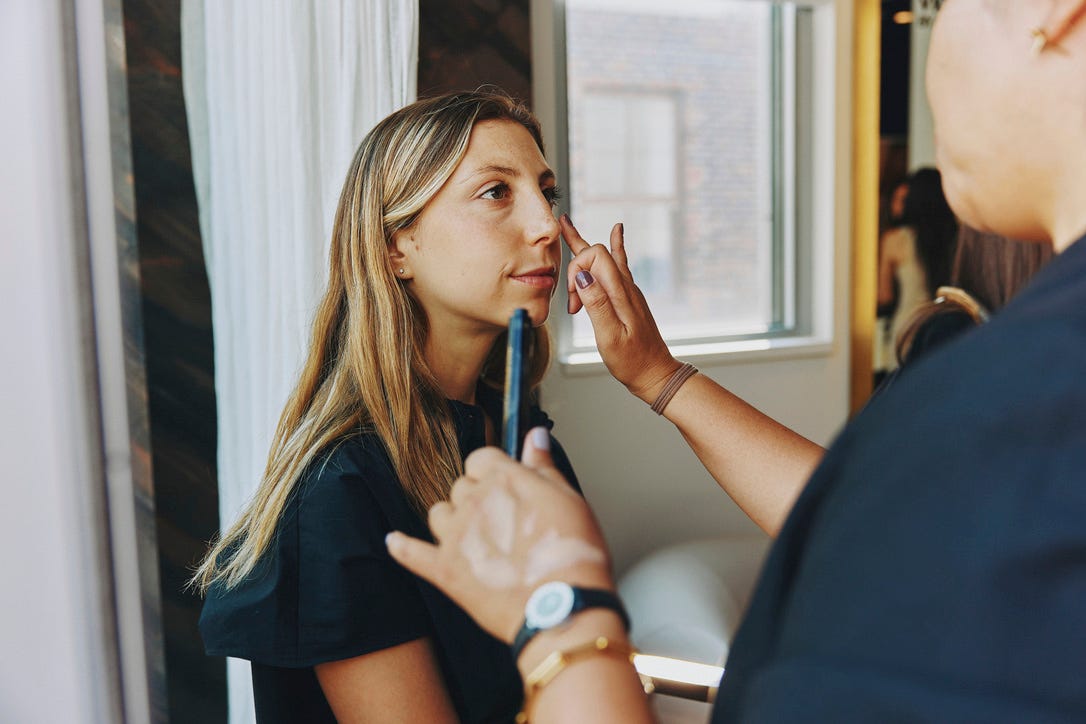
That’s all for now. Reply to this email or leave a comment if you want to reach me. :)






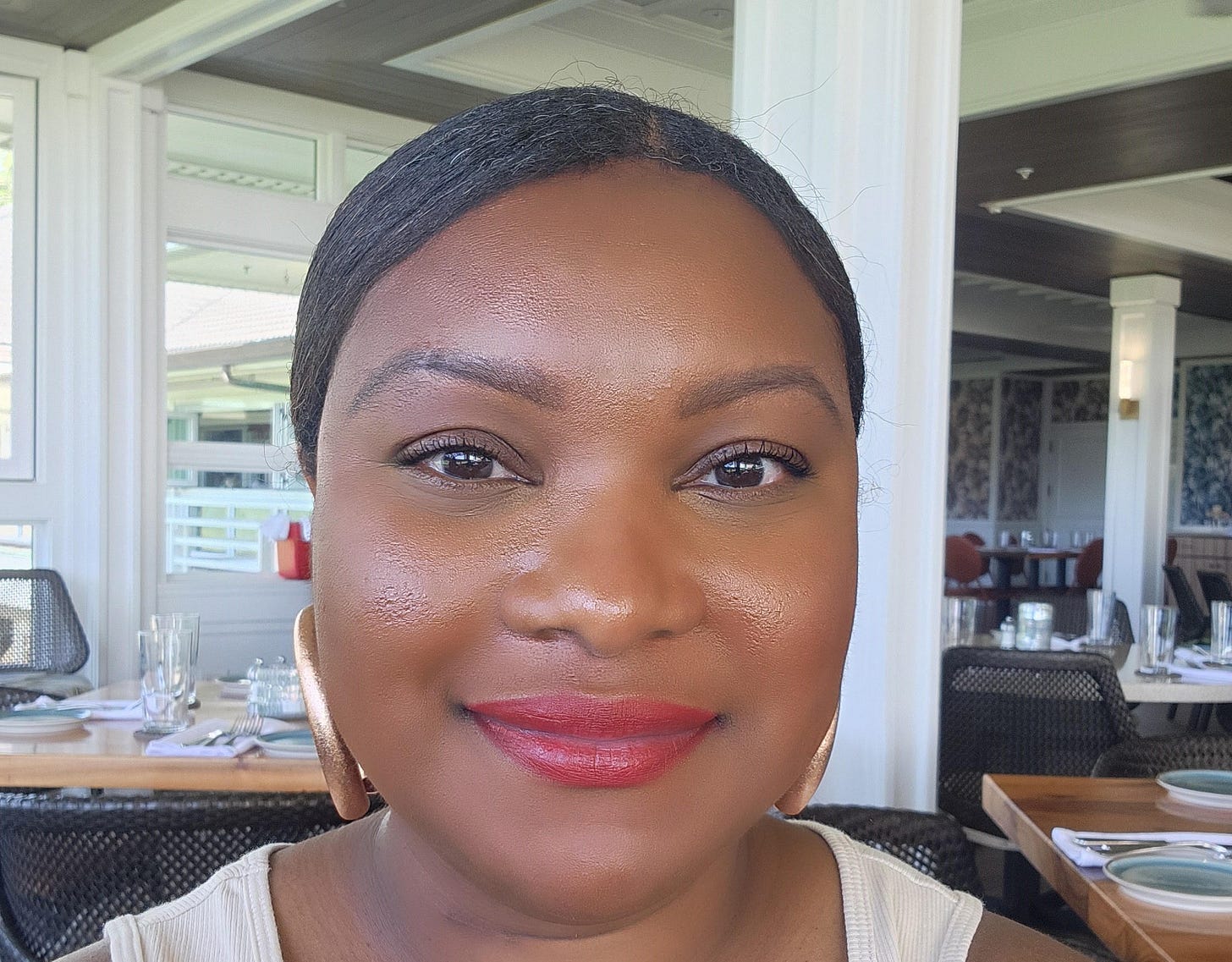


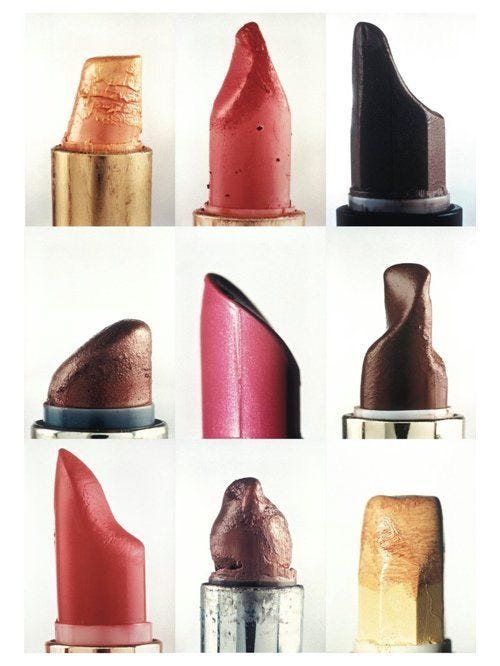
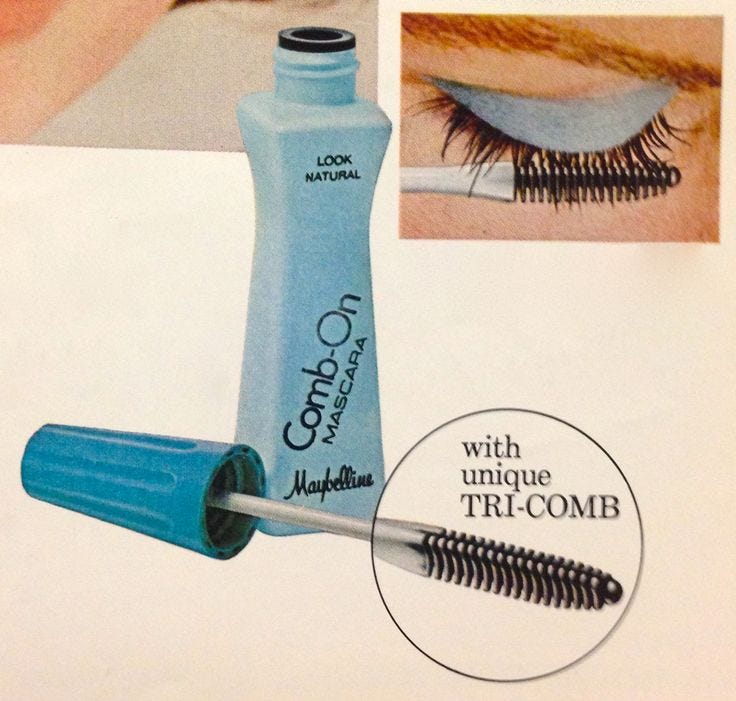
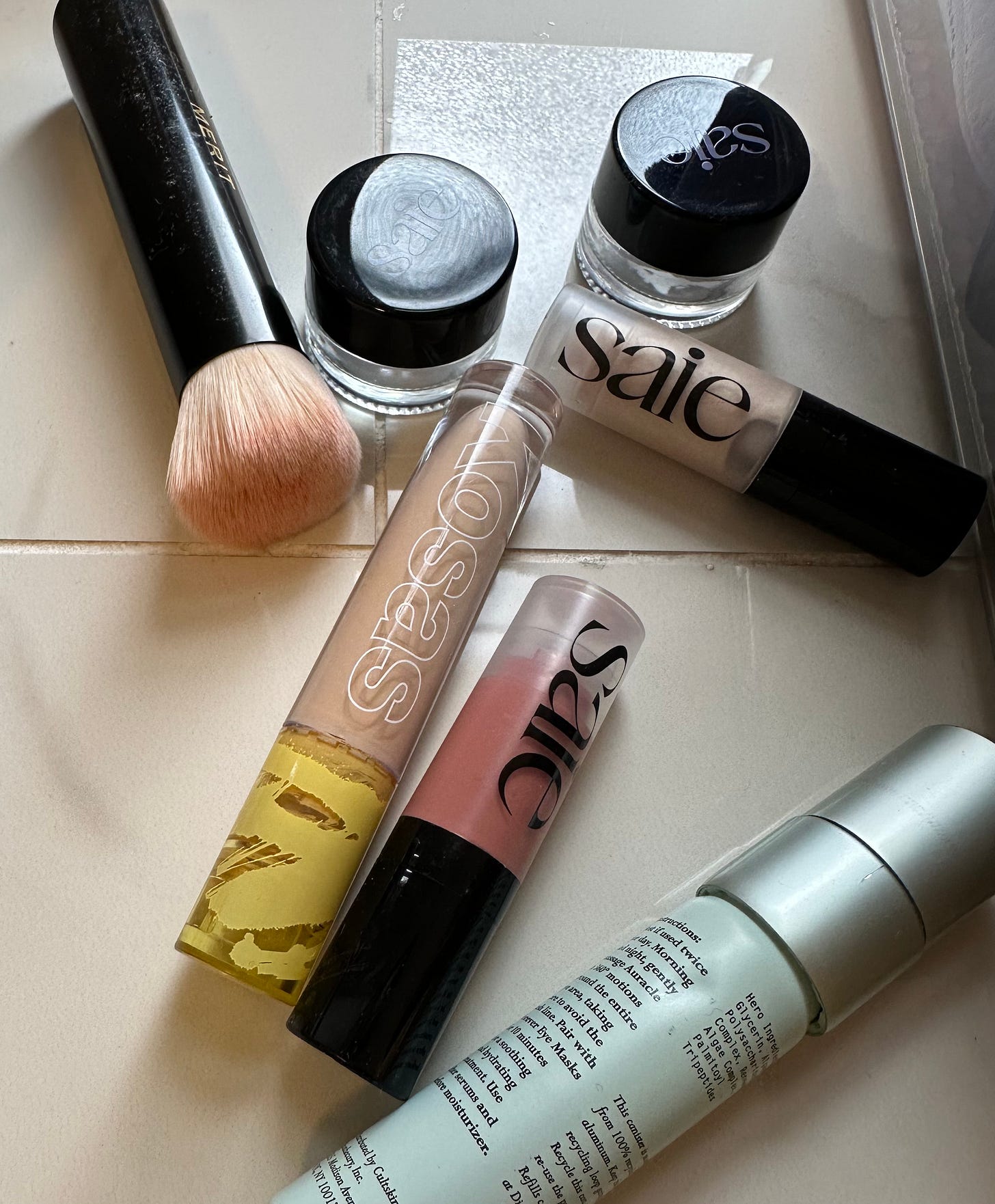

You've influenced me to buy the victoria beckham concealer pen
Wow Kimberly’s work is so cool!